Developability case study
155 antibodies tested for developability in 6 separate assays.
Two benchmark targets were employed for selections using Specifica’s Gen3 scFv libraries, resulting in 187 unique antibody sequences. All antibodies were initially identified as scFv fragments through phage and yeast display, then reformatted into human IgG1, expressed in mammalian cells, and purified for downstream testing. Binding assays confirmed target specificity for 151 antibodies—50 validated binders to RBD and 101 to IFN-2⍺—yielding a conversion/reformation success rate of 81%. These 151 clones, along with four therapeutic antibodies that provide the scaffolds to Specifica’s Gen3 scFv technology, comprised the total set of 155 antibodies analyzed in the study. Developability assays were conducted at AstraZeneca using their internal criteria to assess performance across a comprehensive set of biophysical parameters.


Expression and purification of human IgG1 antibodies were carried out using a CHO-based mammalian cell system. Despite the use of a high-throughput platform not tailored to individual clones, 83% of IFN and 72% of RBD-derived antibodies surpassed the desired yield threshold, with many outperforming their therapeutic scaffold counterparts. All purified antibodies were subjected to size exclusion chromatography to evaluate monomeric content; 91% and 86% of the clones demonstrated monomeric purity exceeding 95%.

Polyreactivity was assessed using two standard assays: BVP ELISA and HEK-293 cell binding. Across both targets and both assays, 97% of the validated IgGs exhibited low or undetectable levels of polyreactivity, underscoring the specificity and robustness of the selection strategy.


Self-association tendencies of the therapeutic antibodies were evaluated using affinity-capture self-interaction nanoparticle spectroscopy (AC-SINS), a widely used assay to identify clones with favorable developability profiles. Results showed that 90% of IFN-derived clones and 100% of RBD-derived clones met the desired threshold for this assay. To assess long-term stability and shelf life, accelerated stability testing was performed by incubating the IgGs at 45 °C for two weeks, followed by evaluation of aggregation and fragmentation. Monomeric content remained above threshold for 97% of IFN clones and 98% of RBD clones, and all antibodies passed the fragmentation analysis.
Summary: This case study, externally conducted by AstraZeneca, evaluated antibodies selected from a transferred Gen3 scFv library, reformatted to human IgG. Remarkably, 81% of antibodies passed overall criteria for developability, with 85%–100% of the clones meeting or exceeding assay thresholds across key developability parameters, including:
Aggregation / degradation: assessed by size exclusion chromatography (SEC);
Self-association: measured via AC-SINS;
Polyreactivity / polyspecificity: evaluated by BVP ELISA and HEK-293 cell binding;
Accelerated stability profiling for aggregation propensity and long-term shelf-life prediction.
Despite being expressed in a high-throughput system not optimized for individual clone yield, expression performance remained robust: 83% of IFN clones and 72% of RBD clones surpassed desired thresholds, with many outperforming the therapeutic scaffolds.
What's possible with you?
Complete the form below to learn how we can collaborate on your next project.
Get In Touch
Contact Us
Contact Us
If you would like to get in touch with us please use the contact form or email address below.

